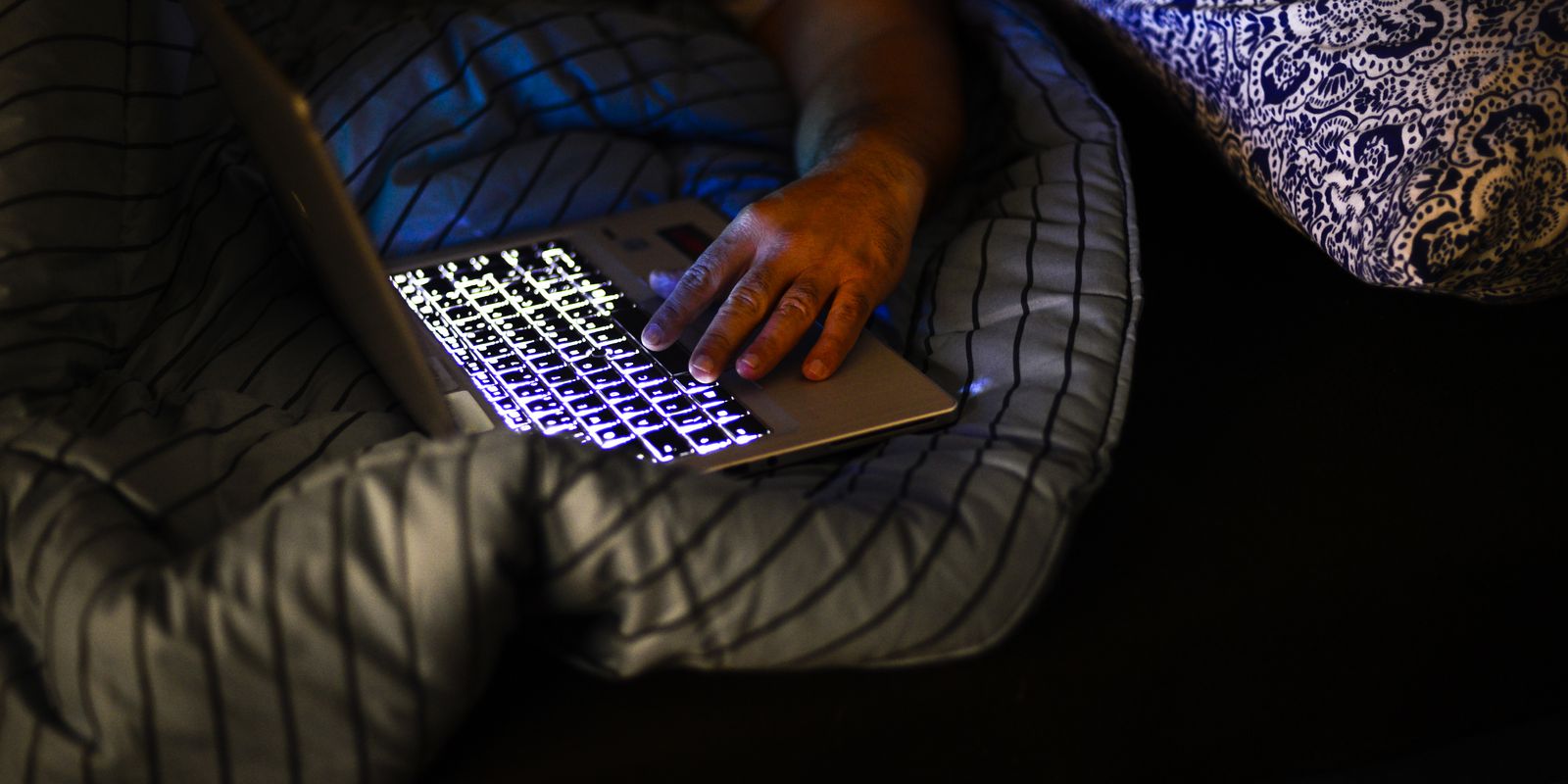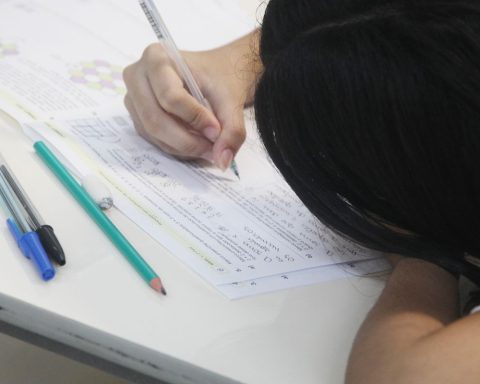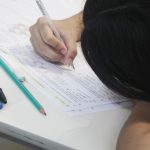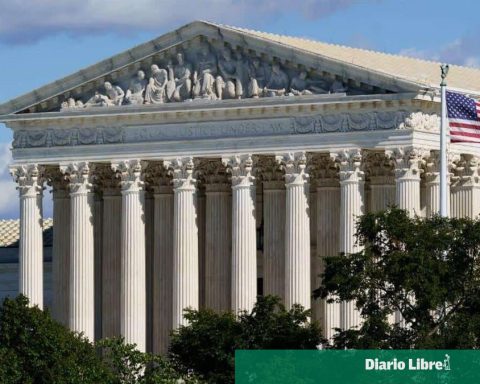“My insomnia started when I changed jobs and became 100% home office” [escritório de casa]. What could have been a relief was the beginning of episodes of insomnia for journalist Poliana Bollini Marques, 49 years old. “Despite all the facilities and not having to wake up before six in the morning, my bedtime became very complicated and I could only fall asleep around three in the morning”, she recalls.
Poliana says that she went without treatment for a while. “I stayed like that for a long time, attributing insomnia to a change at work. I just wasn’t sleepy. To this day it is very rare. Even when I went to sleep late and ended up waking up early, during the day I didn’t feel – and still don’t feel – sleepy”.
The São Paulo Epidemiological Study of Sleep (Episono), conducted by the Sleep Institute, pointed out that 45% of people complain of insomnia or difficulty sleeping in São Paulo. The same survey revealed that 15% of São Paulo residents suffer from chronic insomnia.
Insomnia is defined as dissatisfaction with the quality and/or quantity of sleep, and may manifest as difficulty falling asleep, the so-called initial insomnia; difficulty maintaining sleep: presence of awakenings throughout the night, called maintenance insomnia; or it may be manifested by waking up before the scheduled time, with difficulty returning to sleep, called early awakening insomnia.
“Chronic insomnia is when episodes occur at least three times a week for at least three months, with daytime consequences, associated with loss of concentration, memory alteration, irritability, loss of productivity, normally consequences of this fragmented sleep”, explains the pulmonologist and sleep specialist Luciane Luna de Mello, from Instituto do Sono. A period of less than this, that is, for a month or less, is acute insomnia.
Insomnia may be associated with other illnesses such as depression, anxiety, neurological diseases and chronic pain situations, for example. “In addition, it can also be associated with habits, inappropriate behaviors that do not favor relaxation and the onset of sleep, such as excessive use of screens – especially close to bedtime, excessive consumption of coffee or alcoholic beverages, heavy or greasy food before bedtime,” said neurologist Marcia Assis, vice-president of the Brazilian Sleep Association (Absono).
The practice of physical activity close to bedtime and the conditions of the sleeping environment such as temperature and noise, or even having a bed partner who snores, can disturb sleep, completes the neurologist. “Even another sleep disorder can be associated with insomnia and cause a worsening of sleep quality, such as Sleep Apnea”, adds the neurologist.
Impacts
“Insomnia has an absolutely important impact on society, it impacts people’s daily lives, productivity and health”, warns physician Luciane Luna de Mello, from the Sleep Institute. According to the expert, insomnia can still reduce immunity and worsen the clinical condition. “These individuals may also have irritability, including neurological or psychiatric conditions associated with this process of insomnia, which can generate psychiatric processes. Other times insomnia is generated by psychiatric illnesses, as a secondary cause, ”she explains.
Poliana Bollini Marques sought help when she realized the damage caused by lack of sleep during the day. “A lot of tiredness, bad memory, a little irritability and little productivity. Apart from the inconvenience, even sadness, of staying awake until three in the morning”, she recalls.
But, before seeking help, she tried medications on her own. “I used melatonin without a prescription. It’s been months of taking it and no results. I thought melatonin was for insomnia, but today I know it helps with cases of jet lag [mudança de fuso horário que provoca alterações dos padrões de sono], for example. Melatonin is not a treatment for insomnia. In addition to melatonin, I took herbal remedies. As one didn’t work, sometimes I took two or three. Nothing helped,” says the journalist.
Even with so many offers of medication to induce sleep, self-medication is not a long-term solution, explains specialist Luciane de Mello. “Many individuals with self-medication arrive at the office even addicted to drugs that are not going to be the most suitable for that situation”.
Among the medicines taken on their own are herbal medicines. “Many herbal medicines do not have an effect on adequate sleep, many do not have scientific confirmation that they act on sleep. In literature [médica]which has a better confirmation is valerian [planta medicinal]. But it has to be adequate for mild insomnia or for younger individuals”, observes Luciane.
The doctor warns that the medications are not free of side effects. “You have to be careful because all medication is a chemical substance and even the natural substance has its intrinsic substances that will have some kind of effect, some consequences related to indiscriminate use and in quantities that should not be used”, he stressed.
melatonin
“Melatonin is not a substance recommended for the treatment of insomnia”, warns neurologist Marcia Assis, vice president of Absono. “Melatonin is a hormone and is not used to treat insomnia.”
The specialist clarifies that there are sleep disorders and special medical situations that melatonin can be indicated by the doctor, “however, it should not be used on its own and even less to treat insomnia, as it is not recommended. The attempt, without guidance, to treat insomnia can only mask the symptoms and cause the chronic condition”, warns the neurologist.
Márcia points out that there are drugs approved and recommended for different types of insomnia, but that the treatment considered the gold standard for insomnia is Cognitive Behavioral Therapy for Insomnia (CBT-I).
“Drug and non-drug therapies can be associated. It should be remembered that CBT-I is performed by a psychology professional specializing in sleep. In addition, sleep hygiene should be established for the best results.”
Treatments
Poliana has been treating herself with CBT, recommended by an otorhinolaryngologist, specialist in sleep medicine. “It was a watershed! She guided me, taught me about sleep hygiene and I did Cognitive Behavioral Therapy. I also looked for a psychiatrist, as the pandemic further damaged my sleep. Today, I take medication, Trazodone hydrochloride, and follow up with the psychiatrist and psychologist”.
For her, what is missing now is to do physical exercises, “because they help a lot in all our health. Also, I’m 49 and I realize I’m entering perimenopause. Another phase that messes with sleep. I will include the gynecologist in this step as one more help to take care of my sleep. I feel much better, but there are still adjustments, because the stages of life are changing and you have to pay attention, always ”, she warns.
Therapy is based on sleep hygiene, a set of practices that prepares the body for sleep. Among the guidelines, specialists advise patients to get out of bed, when they wake up in the middle of the night, ruminate on ideas and cannot sleep. In another environment, they should engage in a relaxing activity, such as reading a book, meditating or performing breathing techniques to change their thinking and fall asleep. “Thus, the brain will associate the bed with sleep and not with insomnia”, emphasizes physician Luciane Luna de Mello.
sleep hygiene
For everyone who has insomnia or not, taking care of habits before bed is essential for a good night’s sleep. Based on sleep hygiene, doctors Luciane Luna de Mello and Marcia Assis show how proper habits can help people sleep better.
• Keep a routine: establish schedules for sleep, food, exercise, leisure, work and family activities.
• Do not take the notebook or cell phone for bed: Electronics cause an increase in alertness, in addition to light making it difficult to fall asleep.
• Slow down before going to sleep: at least one hour before going to bed, do a relaxing activity: take a shower, read, listen to music, do meditation or any other activity that helps you slow down.
• Avoid staying in bed working, reading emails, watching television. Reserve this moment for activities that provoke relaxation. Lie down only when you are sleepy.
• Avoid heavy food and caffeinated drinks: eat light meals up to two hours before bedtime. Do not drink coffee, energy drinks and black tea and other infusions that contain caffeine at night.
• Physical activity is good, but not close to bedtime: exercise regularly, but leave at least four hours before bedtime.
• Keep the sleeping area ventilated, silent and dark. Try to leave it at a suitable and comfortable temperature. Very hot or cold environments can make it difficult to fall asleep or cause awakenings during the night.
• Check your pillow and mattress, as most pillows have a lifespan of eight to ten years.
• Avoid alcoholic beverages – they can cause relaxation in the first few hours of ingestion, however, throughout the night, they cause sleep fragmentation and reduction of deeper sleep phases. In addition, alcohol relaxation can make snoring worse. Smoking also impairs sleep.
• For those who prefer a nap during the day, it should be short, no more than 20 to 30 minutes and after lunch.
• Avoid the use of sleep medications without a medical prescription, as they can cause undesirable and negative effects. The help of a professional is essential.















